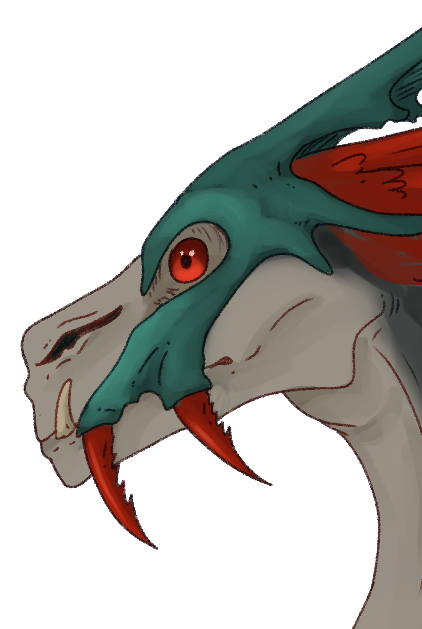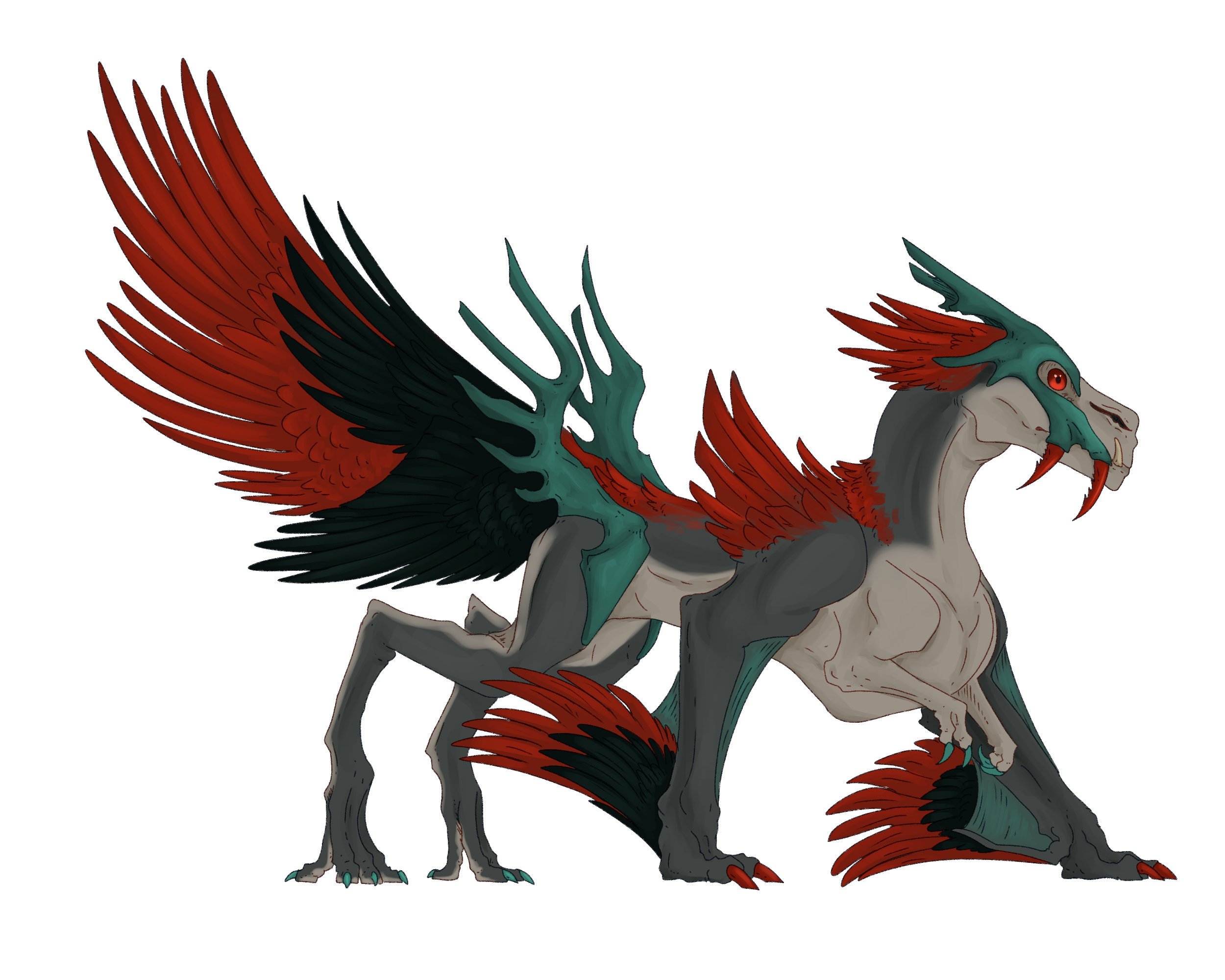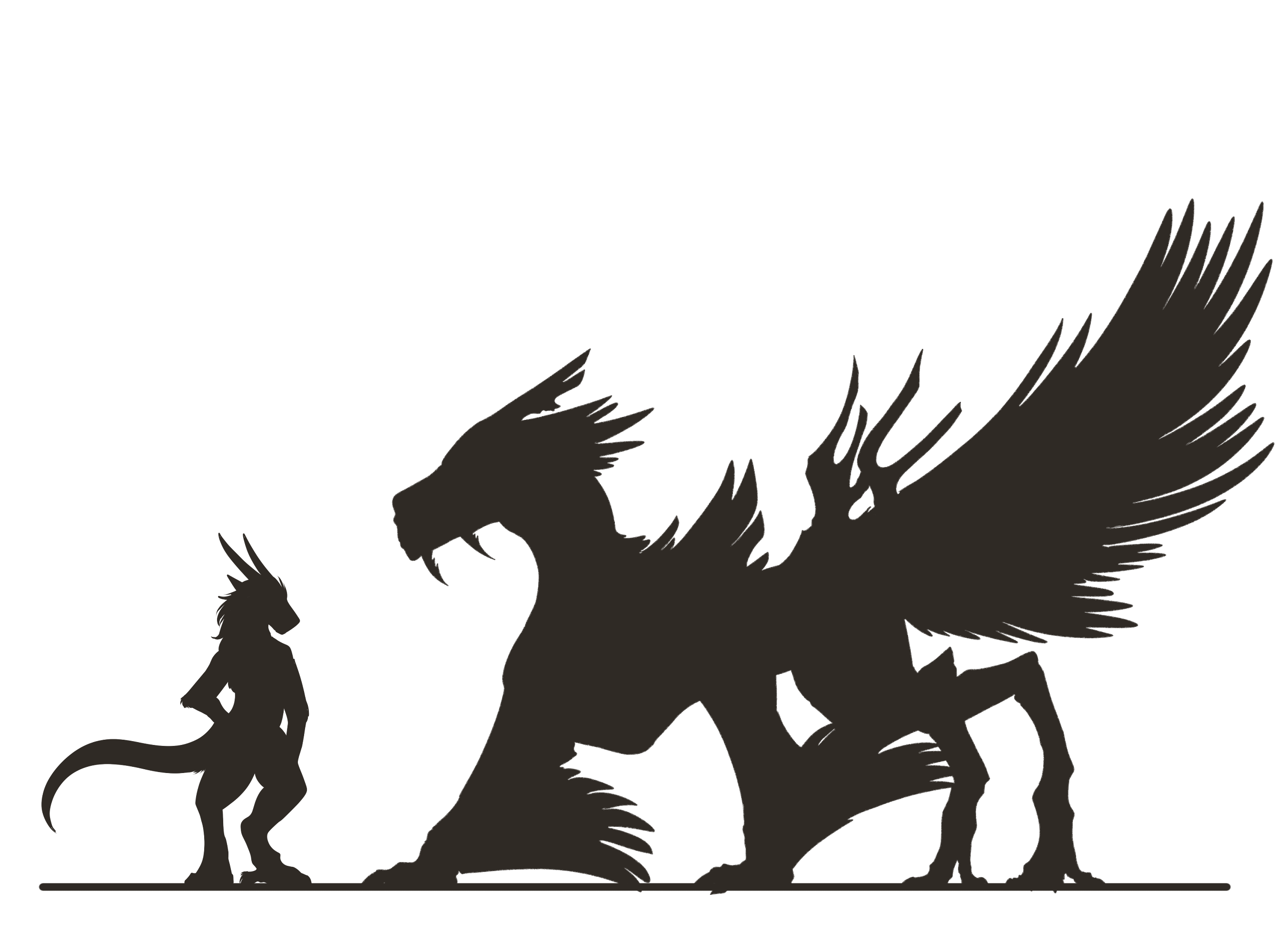
ID: F.CA.1.010
Name: Bjorn’orta
Sub Order: Oh the Larger Shall Run, But Never be Outdone
Lay the mire Red, Crimson Fangs to Dread
Solitary be thy Howl, Feather to Encowl
Class: Pretaria
Sub Class: Orta
Order: Roungar
Group: Baj’orna
Sub Group: Cunning Buck
Height: 5-7ft
Weight: 1786-1815lbs
Length: 7-8ft
Related Species:
Calls:
Range
Malka'masiern stay within the Upʐ Kinöck Flats. The marshy mire a desert oasis, rarely if ever will Malka'masiern leave. Typically only during natural disasters.
Bjorn’orta
Overview
Much like its cousin the Malka'masiern, the Bjorn’orta traverse upon four legs. From
their chest sprout a pair of arms, they use these to dig through the mud. Looking
around for viable sweet roots or small wriggling things. The supporting front legs
of the Bjorn’orta, back of the head, and shoulders all possess a fan of red and deep
teal color. The tail is a massive array of feathers crowned by hip armor. The same
armor that protects its skull.
Despite being flighty and shy, the Bjorn’orta unlike Malka'masiern will stand its
ground. And result to violence far often than not. And while impracticable in most
situations, their large crimson fangs are often laced with toxic saliva. And in a
close quarter brawl their serrated edges will rend and tear any prey/predator
Temperment
Bjorn’orta if repeatedly approached will stand their ground. While dangerous, if one makes no openly violent approach. One could draw near. Thought it is still a gamble of if the animal will attack or not. Bjorn’orta refuse to be steeds, and are far from obedient. They cannot be made into beasts of burden without intense struggle.
Life Cycle
They unlike their others mate for life. Though they are not the most caring of
parents. In their roost, clutches of eight to ten are born. Young whelps
protected by mud walls are fed by their parents. This roost is no permanent
home, and a year or two into the pups life, will the parents depart. Expecting
the young to follow and take a journey days in length. It is here that most of
the clutch dies. Leaving one or two to make it to their new home.
From there, the remaining young are raised to fruition. The love that was
withheld with the parents before is now unleashed in full. They are fed
vigorously, protected with fervor, and seen to adulthood. A tedious task
taking years of careful isolation and grooming. Once an adult, they disperse.
going out to find a mate and repeat the cycle.

